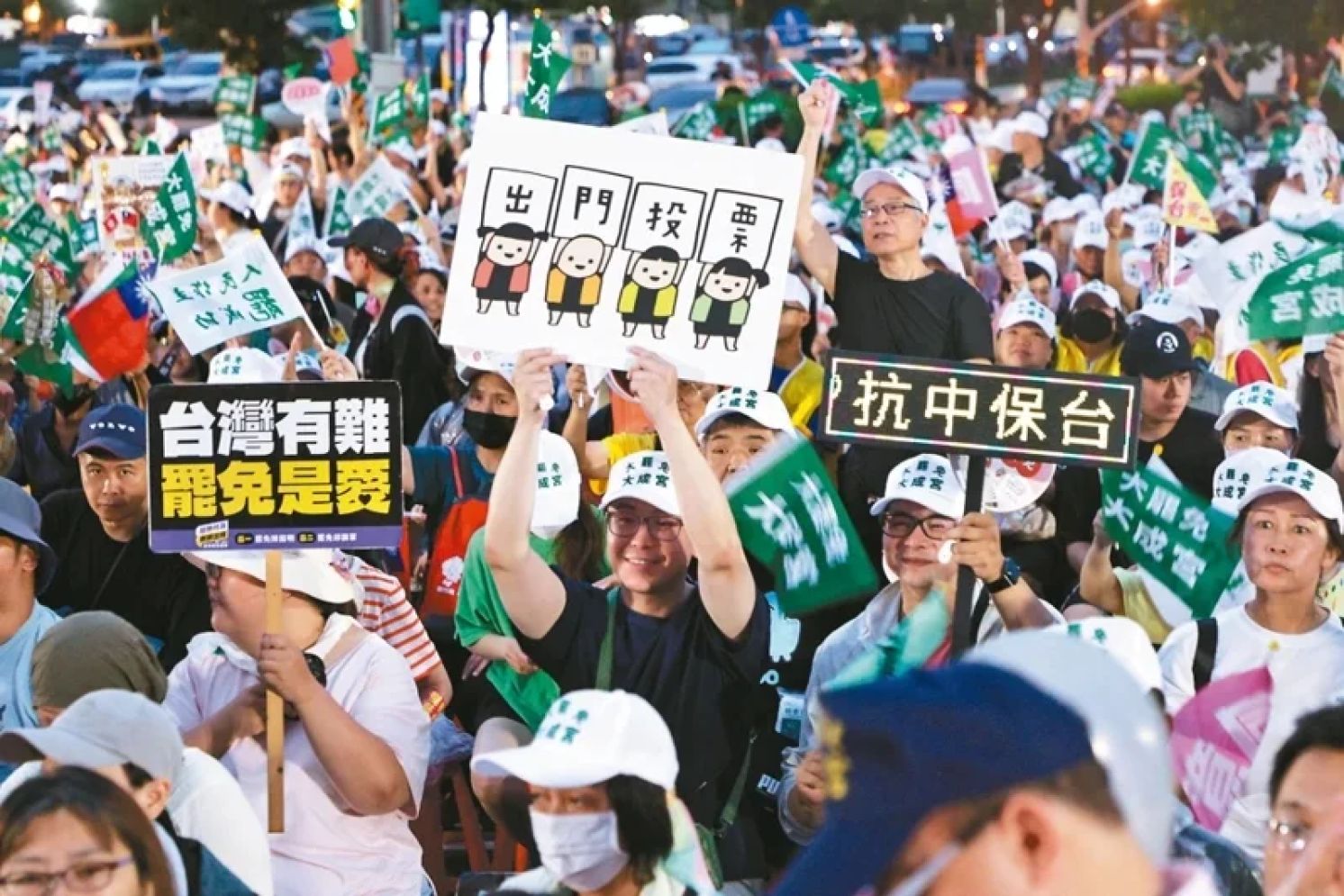
"Resist China to Protect Taiwan" Narrative Chief Reason Behind Failure
The Storm Media Editorial, July 27, 2025
The "mass recall" vote has concluded. All 24 legislators and the new mayor of Hsinchu survived the challenge. In some cases, the number of "no" votes even exceeded the original number of votes received when these legislators were elected. This was not merely a battle for the Kuomintang (KMT) to defend its territory—it hinted at the potential to expand its influence. Undoubtedly, this is a major setback for the Democratic Progressive Party (DPP), which sought to overturn its minority in the legislature, and for President Lai Ching-te, who has spent his first year in office focused almost solely on this effort.
What deserves early caution is the stark contrast in reactions: while the KMT and Taiwan People’s Party (TPP) called for an end to the political spectacle and the beginning of national healing, leading pro-recall figure Robert Tsao, founder of the United Microelectronics Corporation (UMC), blamed the defeat on "an extent of Chinese Communist infiltration and disinformation far beyond our imagination." Lin Chih-chieh, a recall leader in Hsinchu, claimed this marks the beginning of a "war to defend the nation." The recall camp is now concentrating its energy and resources on another round of recalls slated for August 23. If this campaign is considered a "defensive war," then clearly it is not over—because they see every political maneuver as a form of national defense. Ironically, this mindset is precisely what caused their failure and alienated much of the public.
The classic narrative behind the mass recall—"resist China to protect Taiwan"—was built on two key elements: anti-communism and democracy. Ironically, these two pillars were the campaign’s Achilles’ heel. The pro-recall camp distorted the idea of anti-communism and misunderstood the concept of democracy.
In the name of fighting communism, the recall leaders aggressively labeled dissenters as Communist sympathizers. Those who questioned the motives of figures like Legislator Shen, Pao-yang or Tsao were branded as traitors. Joint legislative efforts by KMT and TPP were called treasonous. Even labor unions and benefits like five additional days off for workers were attacked as colluding with China. Ignoring the DPP’s own deep business and personal ties with the mainland, the recall narrative essentially cast everyone outside the DPP and its allies as enemies of the state. This paranoia ultimately led to their self-destruction.
The other central accusation—that the opposition was using its legislative majority to push unconstitutional or authoritarian reforms—was just as flawed. Recall is an extraordinary corrective tool in a democracy, not a routine one. Regular elections already provide a mechanism for democratic correction. Barring illegal or scandalous conduct, legislators are rarely recalled in functioning democracies. But the recall organizers launched a sweeping, indiscriminate assault on all opposition district legislators. This was not democracy in action—it was the destruction of democracy’s most essential principle: checks and balances.
The recall camp sought to restructure the legislature into a body incapable of restraining executive power—a fundamental misinterpretation of democracy. A legislature devoid of checks and balances is the first step toward autocracy. The recall results also reflect dissatisfaction with the Constitutional Court’s wholesale rejection of legislative reform bills. From scandals like the National Taiwan Normal University’s (NTNU) controversial research grants to solar panel corruption exposed by typhoons, it is clear that the legislature’s investigative powers are vital. The Control Yuan alone cannot manage these oversight responsibilities.
The recall camp does not understand democracy. What is even more regrettable is that President Lai pretends not to understand it either. In a lengthy statement thanking “civic engagement,” he claimed this was not a victory or a loss for either side. He cited the signature drives and voter turnout as proof of Taiwan’s democratic vitality. According to him, this civic action thawed frozen budgets, brought civil servants back to local communities with humility, and reminded all political actors of their duty to the nation and constant accountability to the people. He emphasized that our constitutional democracy exists not to create power, but to limit it.